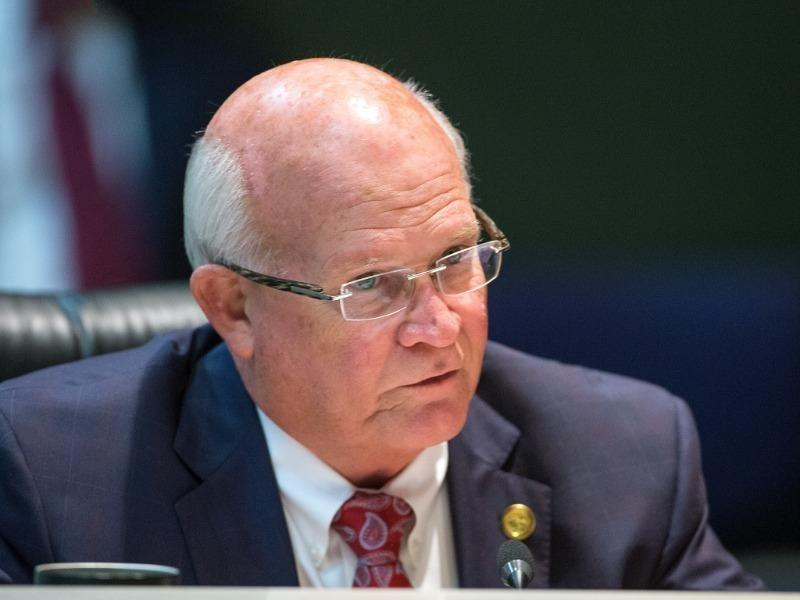Cap on contributions considered

The proposed limit would apply to constitutional amendment efforts

Sen. Dennis Baxley [NSF]
TALLAHASSEE – With Republican lawmakers lining up behind the idea, a Senate committee Tuesday approved a measure that would place a $3,000 cap on contributions to political committees trying to put proposed constitutional amendments on the ballot.
The vote by the Senate Ethics and Elections Committee came a day after the House Public Integrity & Elections Committee approved the House version of the bill.
Republican lawmakers and the Florida Chamber of Commerce contend the proposal is needed to stop deep-pocketed donors from financing ballot initiatives on policy issues that should not be in the state Constitution. They say such issues should be decided by the Legislature, not through constitutional amendments.
“This is not a direct democracy,” Senate Ethics and Elections Chairman Dennis Baxley, R-Ocala, said. “This government that we have is a democratic republic. The Constitution is the founding document to define the role of the relationship between a government and their people.”
But Democrats and groups such as the League of Women Voters of Florida and the Sierra Club said the bill is an attack on a ballot initiative process that has been used in recent years to pass issues such as increasing the minimum wage and legalizing medical marijuana. They said voters have used the process because the Republican-dominated Legislature has not responded to the public’s wishes.
Sen. Randolph Bracy, D-Ocoee, called the Senate bill (SB 1890) “an affront to voters.”
“I believe that this is clearly designed to stop amendments that the majority party doesn’t like,” Bracy said.
The Senate bill and the House version (HB 699) are the latest in a series of attempts by the Legislature to clamp down on the constitutional amendment process. Lawmakers, for example, passed changes last year that toughened petition-signature requirements for putting initiatives on the ballot.
Political committees in the past have spent millions of dollars to gather the hundreds of thousands of required petition signatures. Perhaps the most-prominent wealthy backer of initiatives has been Orlando attorney John Morgan, who spent heavily to pass the medical marijuana amendment in 2016 and the minimum wage amendment in 2020.
The House and Senate proposals would place a $3,000 limit on contributions until the point when initiatives have met requirements to get on the ballot. After that point, contributions would not face a cap.
Critics of the bills say the $3,000 limit — the same limit that applies to statewide candidates — would prevent political committees from being able to collect the needed petition signatures to get measures on the ballot.
“It’s just impossible, and that, I guess, is the goal,” Sen. Tina Polsky, D-Boca Raton, said. “And that is really frustrating, because it’s the people’s document. It’s not the Legislature’s document.”
But Senate bill sponsor Ray Rodrigues, R-Estero, said a proposal could still get on the ballot if it has grass-roots support and volunteers collect signatures.
“If you’re not paying petition gatherers to gather petitions, then I don’t think it costs millions of dollars,” Rodrigues said.





